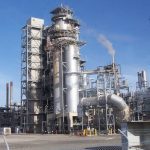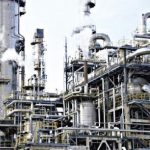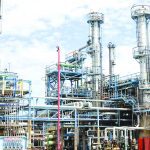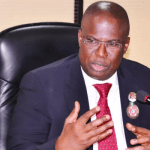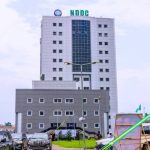NLC and TUC leaders have confirmed that the old Port Harcourt refinery is operational.
This confirmation came after a tour of the facility by union leaders to assess its operations.
During the visit, the Executive Vice President Downstream of NNPCL informed the delegation that the new Port Harcourt refinery is now 90% complete.
The operational status of the refinery has been a subject of controversy, with some expressing skepticism about its functionality.
The labor union delegation include representatives from the NLC, TUC, NUPENG, and PENGASSAN.
Nigerian union leaders have warned against the privatisation of the Port Harcourt refinery.
They advocated for adopting the NLNG model, where the federal government and international oil companies jointly manage the facility.
NLC and TUC leaders have confirmed that the old Port Harcourt refinery is operational.
This confirmation came after a tour of the facility by union leaders to assess its operations.
During the visit, the Executive Vice President Downstream of NNPCL informed the delegation that the new Port Harcourt refinery is now 90% complete.
The operational status of the refinery has been a subject of controversy, with some expressing skepticism about its functionality.
The labor union delegation include representatives from the NLC, TUC, NUPENG, and PENGASSAN.
Nigerian union leaders have warned against the privatisation of the Port Harcourt refinery.
They advocated for adopting the NLNG model, where the federal government and international oil companies jointly manage the facility.
NLC and TUC leaders have confirmed that the old Port Harcourt refinery is operational.
This confirmation came after a tour of the facility by union leaders to assess its operations.
During the visit, the Executive Vice President Downstream of NNPCL informed the delegation that the new Port Harcourt refinery is now 90% complete.
The operational status of the refinery has been a subject of controversy, with some expressing skepticism about its functionality.
The labor union delegation include representatives from the NLC, TUC, NUPENG, and PENGASSAN.
Nigerian union leaders have warned against the privatisation of the Port Harcourt refinery.
They advocated for adopting the NLNG model, where the federal government and international oil companies jointly manage the facility.
NLC and TUC leaders have confirmed that the old Port Harcourt refinery is operational.
This confirmation came after a tour of the facility by union leaders to assess its operations.
During the visit, the Executive Vice President Downstream of NNPCL informed the delegation that the new Port Harcourt refinery is now 90% complete.
The operational status of the refinery has been a subject of controversy, with some expressing skepticism about its functionality.
The labor union delegation include representatives from the NLC, TUC, NUPENG, and PENGASSAN.
Nigerian union leaders have warned against the privatisation of the Port Harcourt refinery.
They advocated for adopting the NLNG model, where the federal government and international oil companies jointly manage the facility.
NLC and TUC leaders have confirmed that the old Port Harcourt refinery is operational.
This confirmation came after a tour of the facility by union leaders to assess its operations.
During the visit, the Executive Vice President Downstream of NNPCL informed the delegation that the new Port Harcourt refinery is now 90% complete.
The operational status of the refinery has been a subject of controversy, with some expressing skepticism about its functionality.
The labor union delegation include representatives from the NLC, TUC, NUPENG, and PENGASSAN.
Nigerian union leaders have warned against the privatisation of the Port Harcourt refinery.
They advocated for adopting the NLNG model, where the federal government and international oil companies jointly manage the facility.
NLC and TUC leaders have confirmed that the old Port Harcourt refinery is operational.
This confirmation came after a tour of the facility by union leaders to assess its operations.
During the visit, the Executive Vice President Downstream of NNPCL informed the delegation that the new Port Harcourt refinery is now 90% complete.
The operational status of the refinery has been a subject of controversy, with some expressing skepticism about its functionality.
The labor union delegation include representatives from the NLC, TUC, NUPENG, and PENGASSAN.
Nigerian union leaders have warned against the privatisation of the Port Harcourt refinery.
They advocated for adopting the NLNG model, where the federal government and international oil companies jointly manage the facility.
NLC and TUC leaders have confirmed that the old Port Harcourt refinery is operational.
This confirmation came after a tour of the facility by union leaders to assess its operations.
During the visit, the Executive Vice President Downstream of NNPCL informed the delegation that the new Port Harcourt refinery is now 90% complete.
The operational status of the refinery has been a subject of controversy, with some expressing skepticism about its functionality.
The labor union delegation include representatives from the NLC, TUC, NUPENG, and PENGASSAN.
Nigerian union leaders have warned against the privatisation of the Port Harcourt refinery.
They advocated for adopting the NLNG model, where the federal government and international oil companies jointly manage the facility.
NLC and TUC leaders have confirmed that the old Port Harcourt refinery is operational.
This confirmation came after a tour of the facility by union leaders to assess its operations.
During the visit, the Executive Vice President Downstream of NNPCL informed the delegation that the new Port Harcourt refinery is now 90% complete.
The operational status of the refinery has been a subject of controversy, with some expressing skepticism about its functionality.
The labor union delegation include representatives from the NLC, TUC, NUPENG, and PENGASSAN.
Nigerian union leaders have warned against the privatisation of the Port Harcourt refinery.
They advocated for adopting the NLNG model, where the federal government and international oil companies jointly manage the facility.


